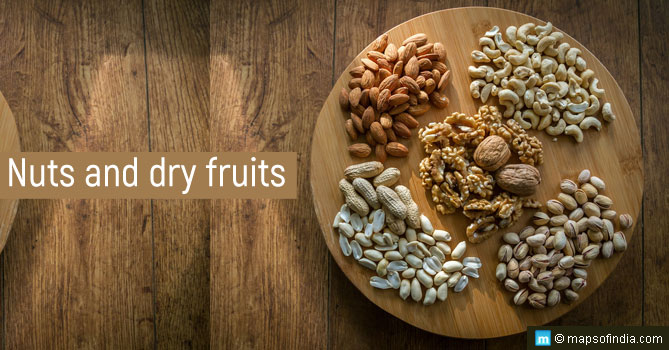Taliban’s takeover in Afghanistan on August 15 has begun to impact beyond the boundary lines. It has halted the trade operations (imports and exports) with India. As a result, India witnesses a rise in dry fruit prices.
The exchange of products and items has been going on for so long between both countries. Nearly 85% of the country’s dry fruits (cashews, almonds, raisins, figs) are imported from Afghanistan.
India exports tea, coffee, sugar, clothing, pharmaceuticals, transmission powers, medicinal herbs, cherry and watermelon to the South Asian nation. In contrast, Afghanistan exports dry fruits, onions, species and gums to India.
Director-General of Indian Export Organisation (FIEO), Ajay Sahai, said that India has contributed worth $835 million items this year with an investment of approximately $3 million for numerous initiatives and is one of the largest trade partners of Afghanistan.
The price of almonds has seen a hike by Rs 100 to 150 per kg, whereas the rates of raisins have also risen by over Rs 100 per kg post the Taliban seizure of power. Suppliers have decided to sell the remaining stock at higher prices due to the unavailability of new supply.
In Jammu, the hike in prices of dry fruits has hit tourism. Tourists seem unenthusiastic about the rise in prices of almonds from Rs 600/kg to Rs 800/kg and walnuts from Rs 400/kg to 600/kg. They procure walnuts and almonds because of the blessed food of Hindu goddess Mata Vaishno Devi.
“It is very difficult to explain to customers the reason for the prices increasing up to Rs 250 per kilogram within ten days. But we are helpless. To avoid any trouble with the customers, I have revised the rate list according to the situation, said Jyoti Gupta, the Dry Fruits Retailer Association president in Jammu. Gupta stated that the demand has also increased due to the ongoing pandemic and festive season.
FIEO chief Sahai emphasised the import route from Afghanistan to India, which passes from Pakistan. “We keep a close watch on developments in Afghanistan. Imports from there come through the transit route of Pakistan. As of now, the Taliban has stopped the movement of cargo to Pakistan, so virtually imports have stopped,” news agency ANI quoted Sahai as saying.
He added, “I am pretty sure over a period of time Afghanistan will also realise that economic development is the only way to move forward and they will continue with that kind of trade. I think the new regime will like to have political legitimacy and for that India’s role will become important for them also.”
Many trade experts believe that the freezing of banking channels and disruption of trade via the integrated check post (ICP) at the Attari border would lead to a further surge in prices of dry fruits if the uncertainty prevails.





